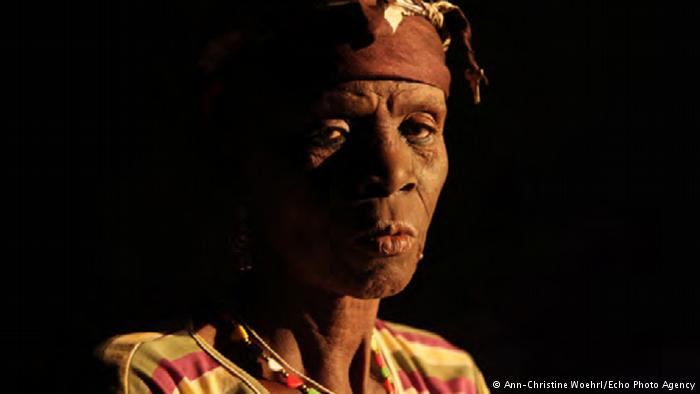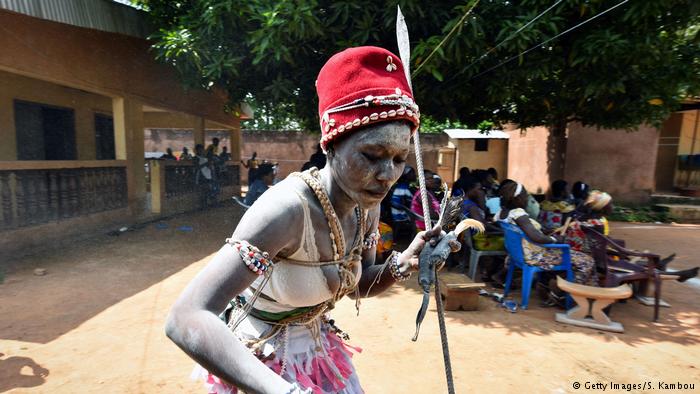Africa’s exiled ‘witches’
In West Africa, many people believe in supernatural powers. Every year, thousands of women are branded as witches and persecuted. They can only survive in isolated villages.
Rejected
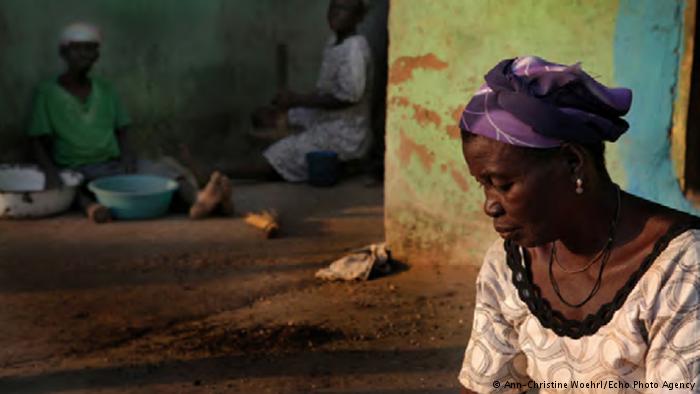 One woman is made responsible for the fact that her nephew died of a snake bite. Another is accused of making someone else’s child sick. In Ghana, allegations of witchcraft are common. They’re a way for families to get rid of women who are no longer of use to them or who have become too independent. Munich-based photographer Ann-Christine Woehrl spent time with some of the accused women.
One woman is made responsible for the fact that her nephew died of a snake bite. Another is accused of making someone else’s child sick. In Ghana, allegations of witchcraft are common. They’re a way for families to get rid of women who are no longer of use to them or who have become too independent. Munich-based photographer Ann-Christine Woehrl spent time with some of the accused women.
Banished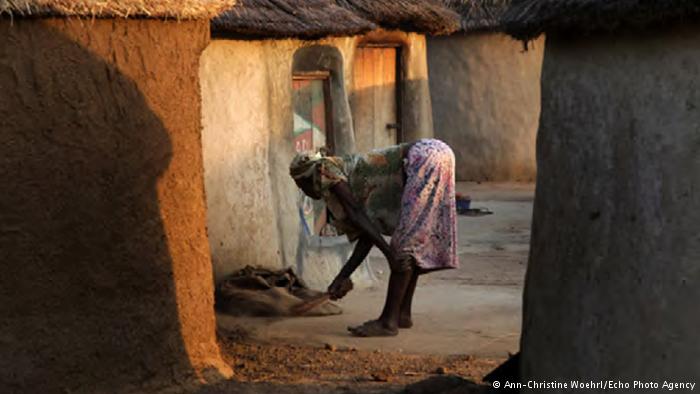
Women in West Africa who are branded as witches have to fear for their lives. Many of them are poisoned, strangled, drowned or burned to death. They find refuge in northern Ghana in six so-called witch villages. Gambaga and Gushiegu are the two villages Ann-Christine Woehrl visited.
Lost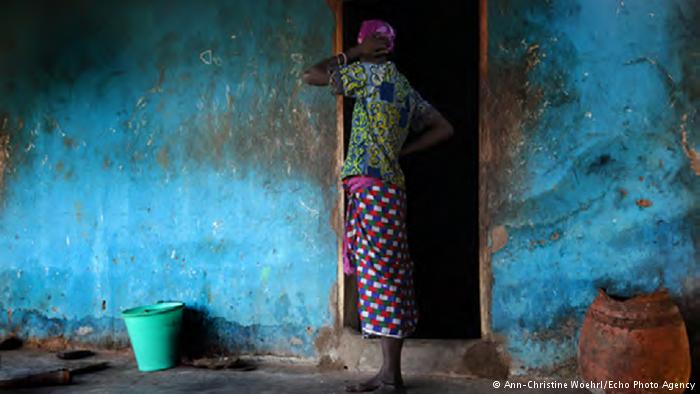
Women accused of witchcraft lose their homes and their identities. They are forced to give up their role as mother, daughter and wife and are sent into exile. Now they live in a community of women who share their fate. Each woman has a small hut to herself and they all contribute to fulfilling their basic needs and supporting the village.
Dignified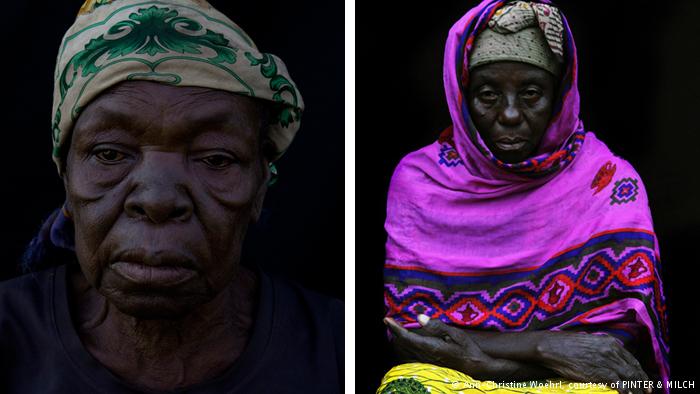
Ann-Christine Woehrl hung black fabric in front of one of the huts and posed 40 women in front of the neutral background. She listened and gave them space to tell their stories. In front of the camera, the women were able to show who they really were or who they wanted to become once again.
Invisible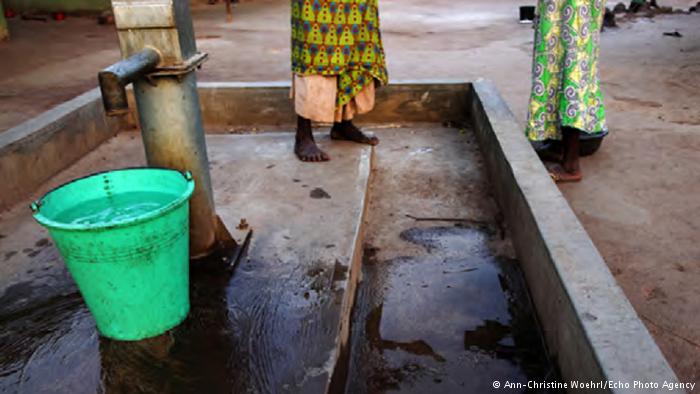
The women build their huts and plant the surrounding fields. In the dry season, they go to the market and collect grain that has fallen to the ground, which no one else wants. They are thinner and poorer than other market-goers and no one pays any attention to them. Essentially, the women are invisible. Their lively conversations can only be heard when they return to their village in the evening.
Stigmatized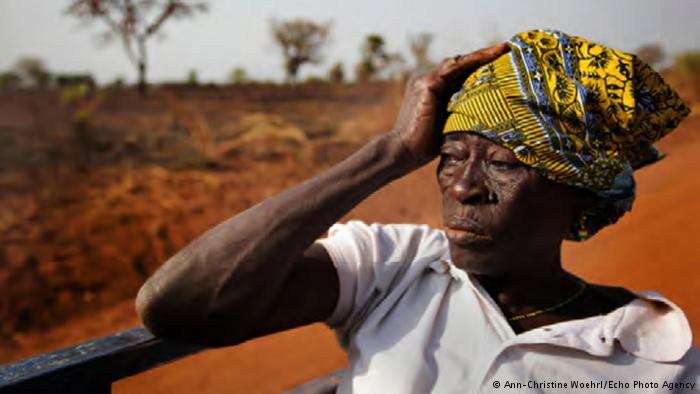
The belief in supernatural powers is widespread in much of West Africa – in both urban and rural areas and across ethnicities and religions. An estimated 1,300 to 1,500 women live in Ghana’s six witch villages, plus a number of their children. In her photos, Ann-Christine Woehrl captured their collective sense of stigmatization.
Hopeful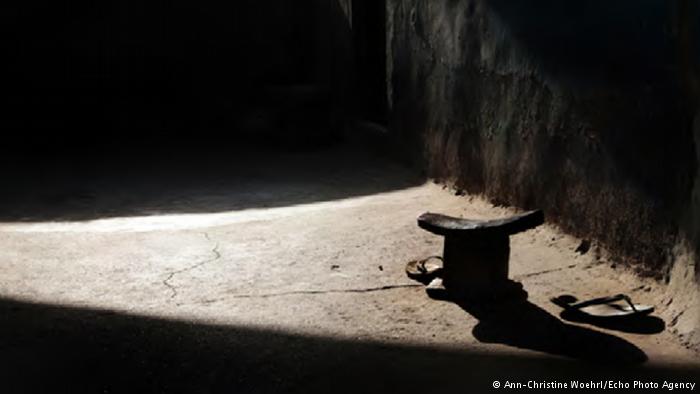
The women in the “witch villages” know that they cannot return to their families. Yet, many of them still hope for a small miracle. Ann-Christine Woehrl’s photos gave them a new sense of confidence and pride. For some of the women, it was the first time they had seen an image of themselves.
Author: Silke Bartlick / kbm
_____
WTO RECOMMENDS
Deadly accusations of witchcraft in India
Every year, hundreds of women in India are attacked and even murdered after being accused of being witches. DW travelled to India’s eastern state of Jharkhand to take a closer look at what could be behind this often fatal superstition. (From August 16, 2016)
Allegations of Sorcery in the 21st Century: Violence against Women
News about atrocities against women in Papua New Guinea (PNG) was commonplace in the last few weeks. Women who have been accused of sorcery were either killed or forced to flee their homes. But this brutal violence against women is not new in PNG. In June 2014 UN rights adviser Signe Poulsen told DW in an interview that the PNG government had failed to protect the victims and bring the attackers to justice. In fact, over the past view years, women accused of being witches have been tortured or burnt in PNG. (From January 30, 2015)
Mob burns woman accused of being a ‘witch’
A 40-year-old woman was burned alive on Friday after a mob accused her of casting black magic spells in a remote village in southern Nepal, police said. (From February 20, 2012)



